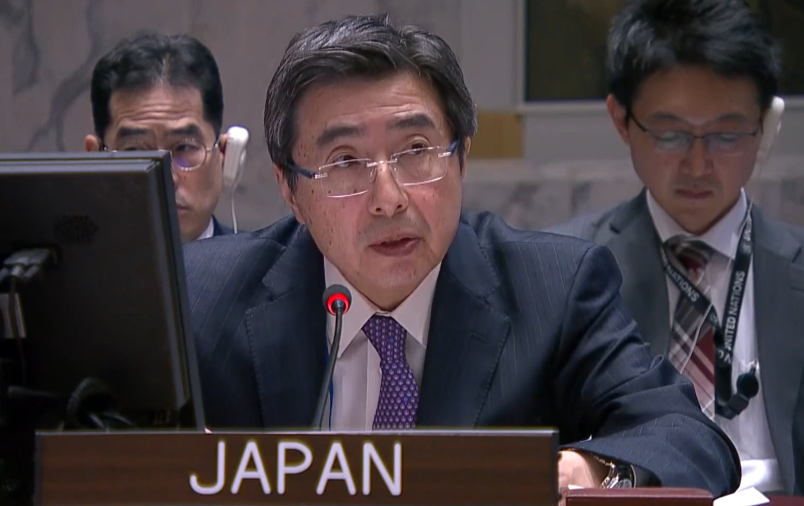ソマリア情勢に関する安保理会合における石兼大使ステートメント
令和5年2月22日

I thank Deputy SRSG Gbeho, AU SRCC Souef, and Ms. Bahous, Executive Director, UN Women for their insightful briefings and contributions.
Peace and stability in Somalia is essential for a stable and prosperous Horn of Africa, and can contribute to a vibrant maritime economy expanding from the Gulf of Aden to the Indian Ocean. Under the leadership of the newly elected federal president, Somalia has seen fresh momentum for its state building efforts despite the lingering challenges it continues to face. In this regard, Japan emphasizes the vital role played by ATMIS, UNSOM and UNSOS, and commends their tireless efforts.
In furtherance of the aspirations of the people of Somalia, and successful fulfillment of the mandate by three missions deployed in Somalia, Japan believes that the following points are essential.
First, Somalia needs stronger partnerships and support from the international community, particularly from its neighbors. The Somalia Neighboring States Summit held in Mogadishu on February 1 demonstrated renewed regional solidarity against common threats. Japan welcomes the leaders’ articulation of their strong will to foster coordination by establishing mechanism for operations and border security. The sovereignty, territorial integrity, political independence and unity of Somalia is paramount, and cannot be achieved with porous borders. Regional cooperation to prevent cross-border movements of terrorists, illegal weapons and ammunition must be expanded.
Second, institution building is vital across all sectors. We commend the recent operational advancements of the Somalia National Army (SNA), with the help of community defense forces. Their operations have led to the further liberation of certain Al-Shabaab strongholds. In order to hold onto these newly liberated areas and deliver sufficient security and basic services, it is crucial to build institutions and capacities at the local and community levels. This has to be done through close cooperation between the Federal Government and Federal Member States with support of international community. Japan, for its part, has contributed to capacity development of central and local government officials through providing training programs. Local institutions and security forces must be able to garner the trust and confidence of people on the ground. Such efforts will create conditions where the presence of ATMIS is no longer required.
Third, it is essential to protect the most vulnerable, and address multifaceted threats to human security in a holistic manner. Unabated clashes and violence continue to displace a large number of women and children, exposed to the risk of falling victim to child recruitment and sexual violence. These challenges add to the already acute humanitarian situation caused and exacerbated by severe droughts and other climate impacts. Women Peace and Security perspective approach is critically important in overcoming difficulties Somalia faces. The humanitarian-development-peace (HDP) nexus should be the key to our approach. In order to build resilience of the community, we should further integrate our assistance on that nexus from food security, medical care, youth empowerment and more.
Let me conclude by assuring that Japan continues to play its part, including as chair of the Al-Shabaab Sanction Committee, in promoting peace and stability in Somalia and the broader region.
I thank you.
